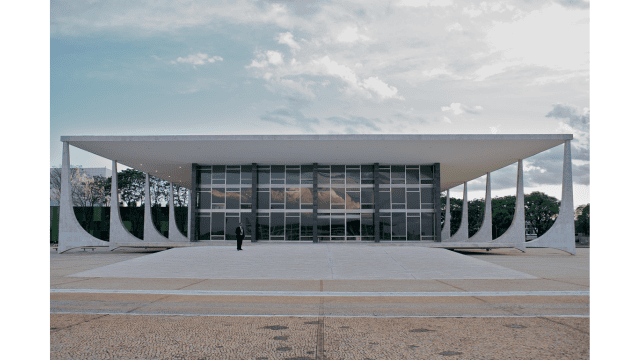Cookie policy
by | Jan 10, 2025 | Testimonies Global
by Massimo Introvigne
The Supreme Court of Brazil has published the opinion by Justice Cristiano Zanin and the grounds for the decision of November 25, 2024, which allowed crucifixes and other religious symbols to remain on display in public buildings.
The controversy arose in 2009 because of the presence of a crucifix in the Plenary Room of the Regional Electoral Court of the State of São Paulo. A citizen protested that this violated freedom of belief, by promoting a specific religion, and state secularism, both present in the Federal Constitution of Brazil.
The Federal Public Prosecutor supported the citizen and asked for the removal of religious symbols from places of wide visibility and public service in federal buildings in the State of São Paulo. However, the Federal Prosecutor lost the case in first degree and on appeal. He appealed to the Supreme Court.
He lost there, too. The National Association of the Evangelical Lawyers and the Brazilian Conference of Catholic Bishops intervened as “amici curiae” against the Prosecutor.
The Supreme Court noted that since colonial times Christianity “was present in the formation of Brazilian society”: “Brazil was born within the foundations of Christianity.”
In fact, the Court said, the question goes beyond the crucifixes in public buildings. The interpretation of secularism by the Federal Prosecutor would lead to question the main public holidays in Brazil, which reflect Christian feasts, the names of “streets, squares, avenues and other public places, public schools,” and even Brazilian states, including São Paulo itself, named after a saint.
All these names and symbols, the courts said, “do not violate the principles of non-discrimination, state secularism and neutrality,” as long as their purpose is merely “to manifest the cultural tradition of Brazilian society.”
Mentioning the 2011 “Lautsi” decision of the European Court of Human Rights, which allowed crucifixes to remain in public schools in Italy, Justice Zanin concluded that “the presence of religious symbols in public spaces, contrary to what the appellant maintains, does not delegitimize the action of the administrator or the impartial conviction of the judge; it does not take away their faculty of self-determination and mythical-symbolic perception; nor does it hurt their freedom to have, not have, or stop having a religion.”
Massimo Introvigne (born June 14, 1955 in Rome) is an Italian sociologist of religions. He is the founder and managing director of the Center for Studies on New Religions (CESNUR), an international network of scholars who study new religious movements. Introvigne is the author of some 70 books and more than 100 articles in the field of sociology of religion. He was the main author of the Enciclopedia delle religioni in Italia (Encyclopedia of Religions in Italy). He is a member of the editorial board for the Interdisciplinary Journal of Research on Religion and of the executive board of University of California Press’ Nova Religio. From January 5 to December 31, 2011, he has served as the “Representative on combating racism, xenophobia and discrimination, with a special focus on discrimination against Christians and members of other religions” of the Organization for Security and Co-operation in Europe (OSCE). From 2012 to 2015 he served as chairperson of the Observatory of Religious Liberty, instituted by the Italian Ministry of Foreign Affairs in order to monitor problems of religious liberty on a worldwide scale.
Via Confienza 19
10121 – Torino
Italy
info@bitterwinter.org
